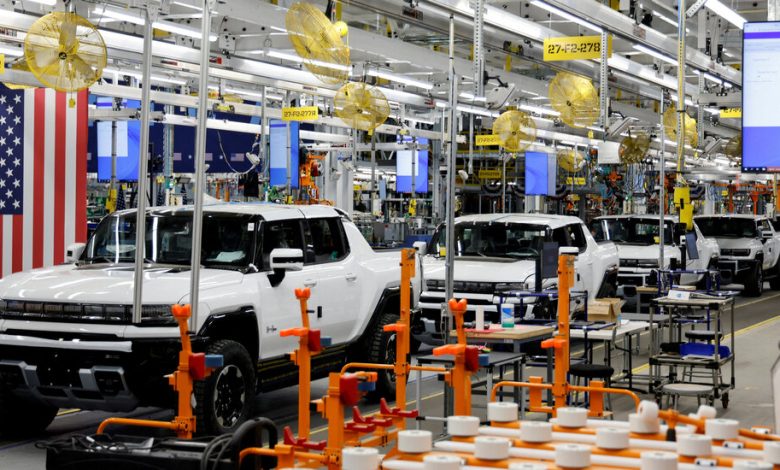G.M. Will Add Backup Power Function to Its Electric Vehicles

General Motors said Tuesday that it planned to equip all its electric cars and trucks with the ability to act as backup power supplies during blackouts.
The decision to install two-way charging technology in Chevrolet, Cadillac and GMC electric cars and trucks, enabling them to power homes in an emergency, shows how carmakers are marketing the vehicles as being not just cleaner than their gasoline counterparts but also more practical.
The technology will begin appearing in vehicles this year, including an electric version of the Silverado pickup and an electric Cadillac Escalade, which G.M. will unveil on Wednesday. By the 2026 model year, all G.M. electric vehicles will have what is known as vehicle-to-home technology, the company said.
That will include a new version of the Chevrolet Bolt. G.M. planned to discontinue the compact car but reversed the decision last month after people complained about the disappearance of one of the most affordable electric vehicles.
Vehicles able to keep the lights on and refrigerator running during a power outage could be appealing as blackouts become more frequent and longer because of extreme weather caused by climate change. The average duration of power outages doubled from 2015 to 2021, according to the U.S. Energy Information Administration.
Carmakers are increasingly stressing the practical advantages of electric vehicles as they market them to people who may not be willing to pay extra to help the environment, or are hesitant to embrace new technology.
“In addition to providing you with the mobility that you’ve enjoyed for the past 100 years with cars, we can now also provide backup power to your home,” Hossein Hassani, a G.M. vice president responsible for the company’s vehicle-to-home products, said in an interview.
G.M.’s backup power technology opens another front in the company’s competition with Tesla, whose Powerwall batteries can be installed in garages or basements to store solar energy and provide backup power. Tesla vehicles are not designed to power homes, but the company has hinted that it would add that ability in years to come.
Some electric vehicles available now, such as the Ford F-150 Lightning pickup, can provide power to owners’ homes. But most electric cars do not have the technology.
While all G.M. vehicles will be able to supply power to homes, customers will need to pay extra for hardware to connect to household electrical systems. Still, the cost is expected to be less than a generator or a separate battery. Tesla sells Powerwalls for $8,700 before federal tax credits.
Electric vehicles are also seen as a way for utilities to store excess solar or renewable energy. In return for payment or discounts on their bills, owners would allow utilities to use their vehicles like sponges that could absorb renewable energy when it is abundant and release it when the grid needs more power.
“A question we get a lot, particularly from certain markets where people experience blackouts and brownouts and grid resiliency issues, is, ‘Is the grid ready for all these electric vehicles?’” Mr. Hassani said. “So we like to flip that question around and say, ‘How can all these electric vehicles support the grid?’”




